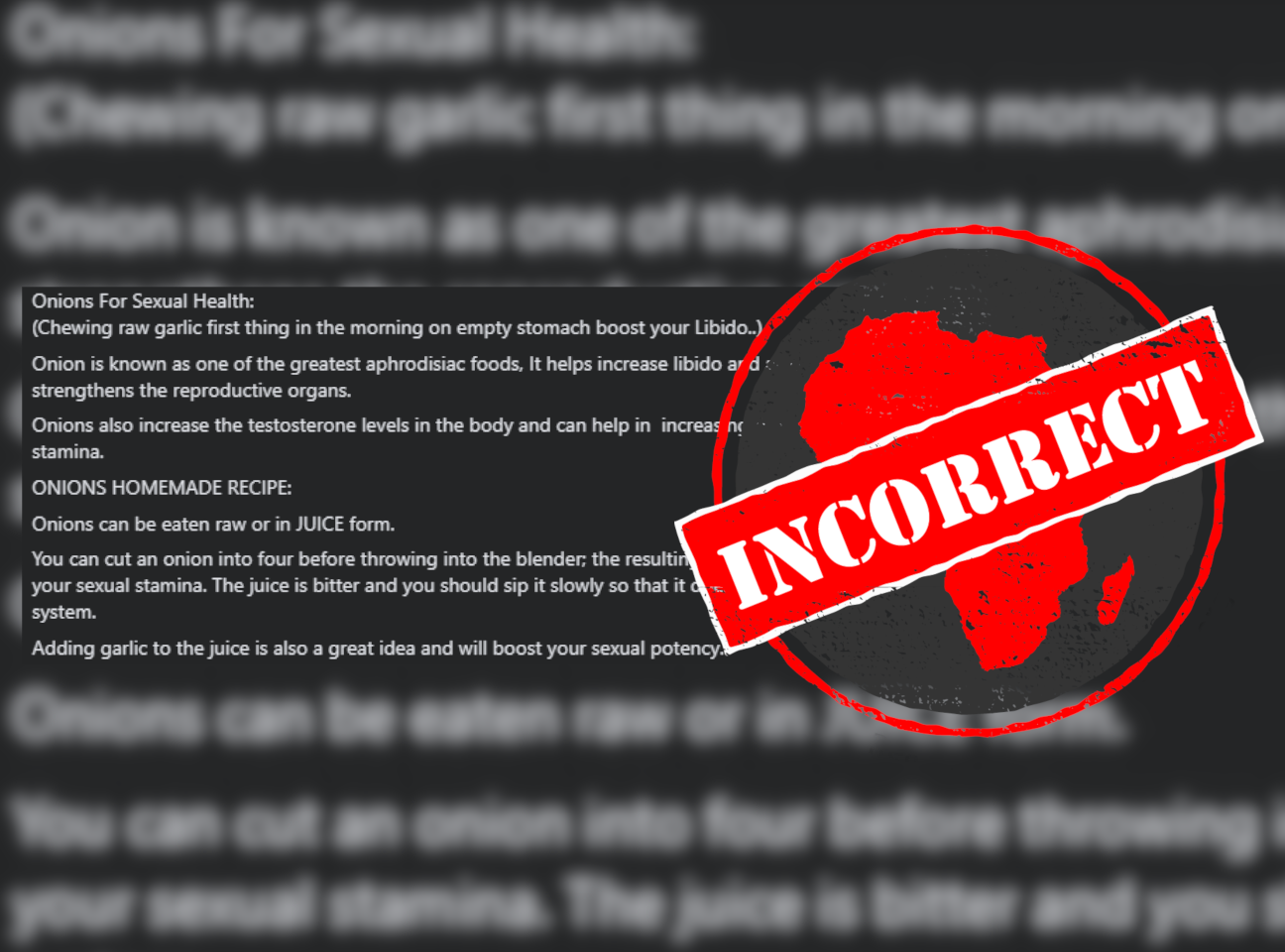IN SHORT: Posts on social media suggest that onions, eaten raw or drunk as a juice, are a potent aphrodisiac. But there is very little evidence to back up these claims.
A post shared on Facebook in Nigeria claims that onions boost sexual potency in men.
The same claim has been shared on various pages on Facebook and describes onions as “one of the greatest aphrodisiac foods”.
Some of the posts date as far back as July 2021.
“It helps increase libido and also strengthens the reproductive organs. Onions also increase the testosterone levels in the body and can help in increasing the sexual stamina,” a 27 April 2023 post reads.
It suggests that onion “can be eaten raw or in JUICE form”, or blended. “The juice is bitter and you should sip it slowly so that it doesn’t shock your system,” the post says.
Testosterone is a sex hormone that has a number of functions in the body, including the development of the penis and testes, sperm production, the size of muscles, the voice deepening during puberty, and the growth of facial and pubic hair.
The hormone is found in both men and women.
But can it be boosted by eating this rather smelly snack?

Little scientific evidence to back the claim
The idea that onions, belonging to the allium family of plants, can increase virility in men is, strangely enough, not new.
A small number of scientific studies have investigated the effect of onion juice on the production of testosterone in men as well as the “copulatory behaviour” and sperm production of male rats. But none found conclusive results to suggest eating or drinking raw onion as an aphrodisiac.
Sulyman Kuranga is a professor of urology at the University of Ilorin, Kwara state, in western Nigeria.
He told Africa Check that there was no scientific research that had proven that onion juice increased testosterone levels in the body or boosted sexual potency in men.
“No, there is no empirical evidence to support that,” he said.
Republish our content for free
For publishers: what to do if your post is rated false
A fact-checker has rated your Facebook or Instagram post as “false”, “altered”, “partly false” or “missing context”. This could have serious consequences. What do you do?
Click on our guide for the steps you should follow.
Publishers guideAfrica Check teams up with Facebook
Africa Check is a partner in Meta's third-party fact-checking programme to help stop the spread of false information on social media.
The content we rate as “false” will be downgraded on Facebook and Instagram. This means fewer people will see it.
You can also help identify false information on Facebook. This guide explains how.


Add new comment